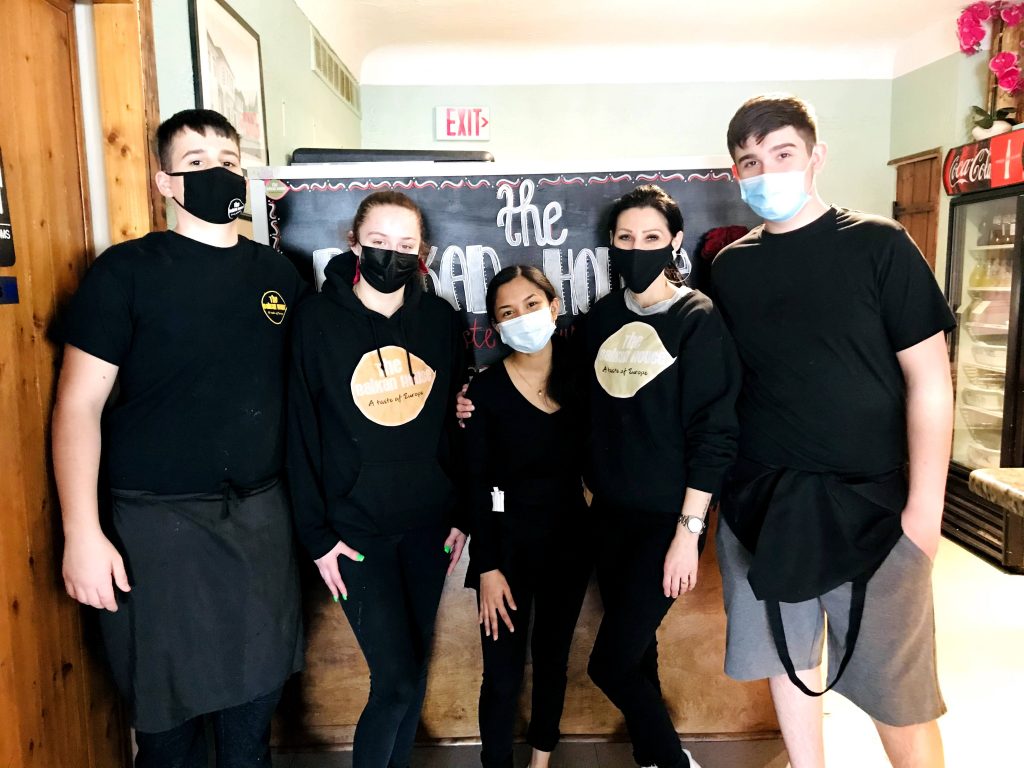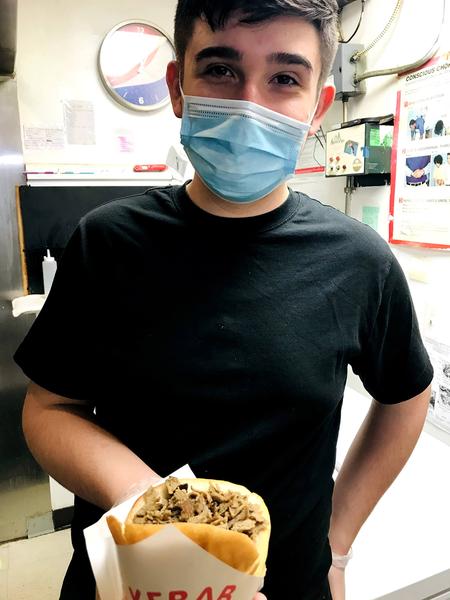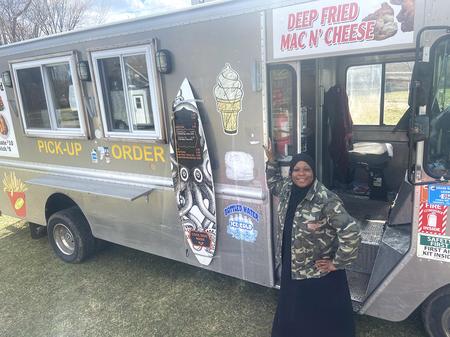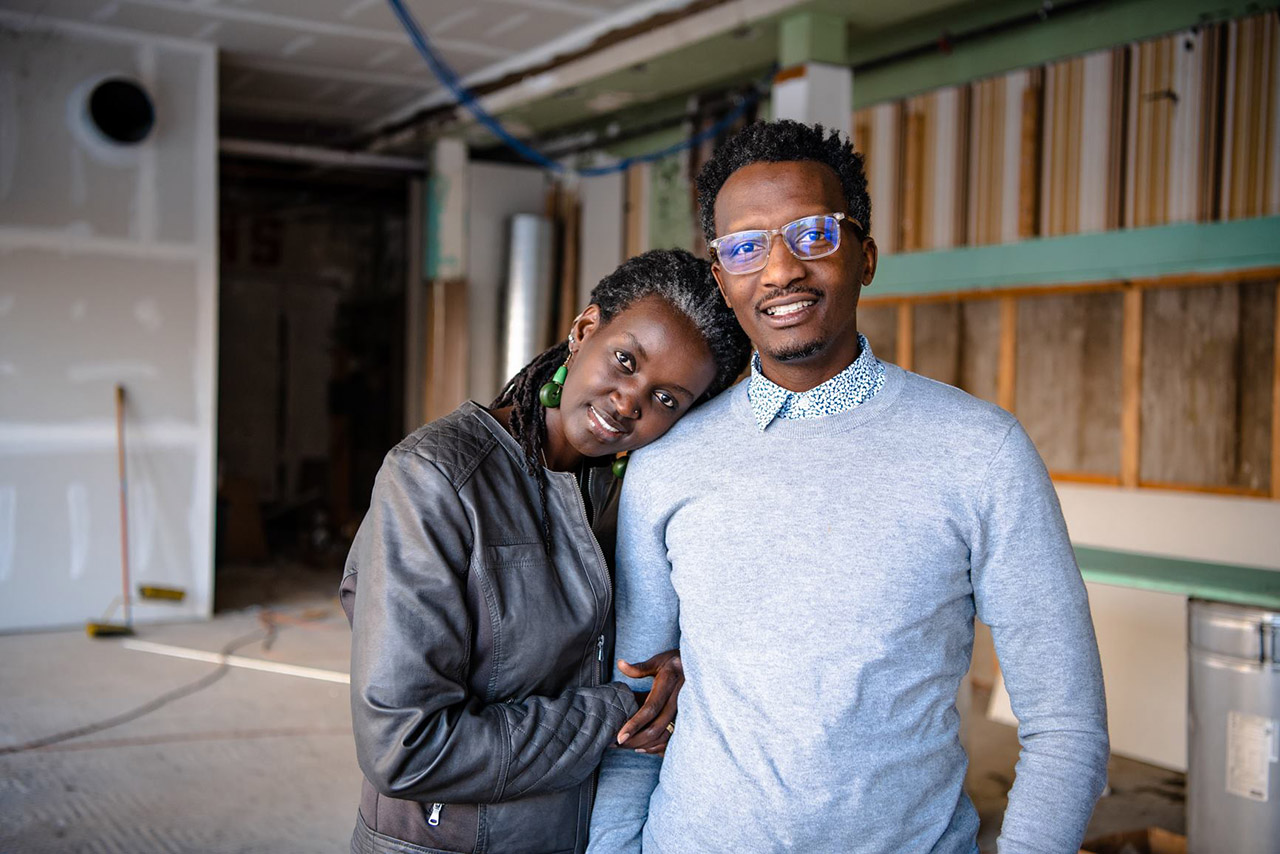Metro Detroit Food Businesses Adapt to Ramadan Traditions During Pandemic
From serving late-night family-style meals to bringing food directly to mosques, entrepreneurs found a way to serve people looking to break their fast after sunset.

During the month of Ramadan, Muslim-owned restaurants in Metro Detroit extend their hours for late-night customers looking to break their fast after sunset. Muslims around the world fast from dawn until dusk during Ramadan for 29-30 days. Some people may want to pick up a savory or sweet treat in the wee hours of the night.
This year, some businesses worried about how the pandemic has impacted Ramadan traditions.
“The goal is like next Ramadan, we’re going to be an extending hours to, you know 11 p.m. sometimes, you know, like have long hours in Ramadan so you can have people, festivities, people come chat … you need that. I feel like I miss that.” –Hamissi Mamba, owner of Baobab Fare
Balkan House Caters to Families

In Hamtramck, a popular Bosnian-owned restaurant called the Balkan House usually stays open late for people to break their fast. Last year they offered only carryout orders. This year they were able to offer dine-in services at limited capacity.
Emir Islamovic has been working at Balkan House since its opening in March 2019. He does a little bit of everything, including cooking. Although Balkan House is most notably known for their doner kababs, they serve family-style meals during Ramadan.
“We have a mixed meat platter. We usually enjoy that all together and we usually have a lot of families, and the mosques will order from us a lot. We will make them the foul and eggs, we will make them the mixed meat platters,” says Islamovic.
Islamovic says the restaurant has special traditions during the month like decorating and breaking fast with the staff once a week.
Khalipha’s Mobile Kitchen Delivers Meals

Detroiter Khalipha Kane owns Khalipha’s Mobile Kitchen. She found a different way to dish out meals from her food truck during Ramadan. This year Kane provided meals for sehri, the pre-dawn meal and, iftar, to break the fast outside of mosques across Metro Detroit. Her truck filled a void for those who may need a prepared meal in the evenings.
Last year Kane crowdfunded the money to launch her business. Some people have sponsored meals for others during the pandemic and throughout Ramadan.
“We will bring the truck, and we’ll cook all the food, plate everything, and then wherever the location is, we will be able to serve,” says Kane.
Kane has been catering food for 23 years. But what makes her food popular across metro Detroit?
She sells halal soul food, something that’s hard to find in Michigan, replacing pork with other meats, which are prepared according to Islamic dietary laws.
“For instance like my collard greens, I ended up making them just basic like vegetables and herbs and stuff and just seasonings that give it that poppin’ flavor so that, for those who are vegetarian or even people [who are] still meat-eaters, it’s still, you know likable for both,” Kane says.
Baobab Fare Creates Community

In Detroit’s New Center, Hamissi Mamba says he was looking for a safe place to break his fast. He’s now the owner of Baobab Fare.
Mamba grew up in Burundi, an East African country where Muslims make up 3% of the population. He says when he moved to Detroit for asylum he longed for a community to observe Ramadan with, and traditional meals.
“Burundian tradition Ramadan you … we eat something very light … we have a mohogo, which is cassava, or yucca with fish and sauce that is very common in Burundi in Ramadan. And we have a one dish, politique, which it’s a piece of potatoes, carrots. It’s very light so that is what you break fast with,” says Mamba.
He served these dishes at his restaurant to share them with others on Fridays from 9-11 p.m. throughout Ramadan, which ends on Wednesday.
Mamba says he hopes to have people gather, chat and celebrate during the holy month.
“The goal is like next Ramadan, we’re going to be an extending hours to, you know 11 p.m. sometimes, you know, like have long hours in Ramadan so you can have people, festivities, people come chat, you know, you need that. I feel like I miss that.”
He hopes things will look up next year.
Listen: How Metro Detroit food businesses adapted during the pandemic.
Trusted, accurate, up-to-date
WDET is here to keep you informed on essential information, news and resources related to COVID-19.
This is a stressful, insecure time for many. So it’s more important than ever for you, our listeners and readers, who are able to donate to keep supporting WDET’s mission. Please make a gift today.
